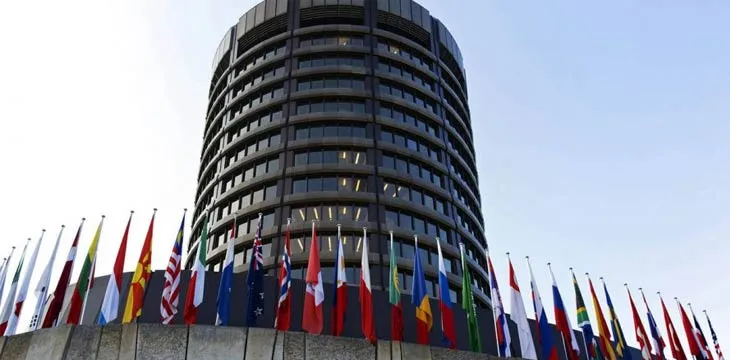|
Getting your Trinity Audio player ready...
|
The Bank for International Settlements (BIS), the Swiss organization owned by 60 central banks, has published a working paper that is highly critical of the proof-of-work system, based on observations made on the Bitcoin Core (BTC) network.
The paper, ‘Beyond the doomsday economics of ‘proof-of-work’ in cryptocurrencies’ by Raphael Auer, argues that the cost of mining blocks through the proof-of-work (PoW) system will continue to be expensive in order to compensate miners in thwarting 51% attacks, that is, attacks where a network’s hash power is controlled so as to alter past transactions.
Auer states that the cost of “economic payment finality,” or the point where it is no longer profitable for an attacker to try to reverse a transaction, is “extreme,” where mining income is estimated to reach 8.3% of transaction volume, which is several times the amount charged by miners today.
According to the author, double spending made possible by 51% attacks “is very profitable. In fact, attackers stand to gain a much higher bitcoin income than does an honest miner.” He adds that this profitability will become more apparent as block rewards for miners halve over time.
Mining Bitcoin SV (BSV), for example, will provide a reward of 6.25 coins per block mined beginning around next year, down from 12.5 coins at present. The shrinking of the reward to 0 is expected in the middle of next century.
https://youtu.be/gBb9FSxfyVs
Auer states that one limitation of the current system is that transaction fees are unable to guarantee security of payments. “While each user would benefit from high transaction fee income for the miner, the incentives to contribute with one’s own fee are low,” the author said, calling the situation “a veritable ‘tragedy of the common chain’.”
The BIS paper suggests that the low transaction fees that users seek would be lower than an optimal fee required to adequately maintain security of transactions, and transaction time will suffer as a result. In the example given, a waiting time for the processing of one transaction could take the equivalent of 50,000 blocks being mined, or about a year.
The BIS paper assumes a block size of 1MB, which limits its applicability to other proof-of-work blockchains. The author is thus stuck with considering remedies such as Lightning Network, which he acknowledges has its own problems. A proof-of-stake (PoS) system in place of PoW is likewise considered, but viewed as untested and susceptible to attacks.
bComm Association Founding President Jimmy Nguyen, in advocating Bitcoin SV, foresees larger blocks as precisely the way for miners’ transaction fees to remain economically feasible, even as the block reward is reduced.
Because the BIS paper primarily looks at BTC and its lack of scalability, a case is built for “a world of semi-decentralised exchange” where the perceived flaws of cryptocurrencies can be corrected by traditional institutions which will provide “overarching coordination mechanisms that are also tied to the legal system.”
Auer, who remains skeptical of the use of cryptocurrencies as money, says that their value may merely be “to catalyse our thinking on how society can handle access to data and the right to edit it, a much-needed impulse at a time characterized by loss of privacy and the rise of technology-driven disinformation campaigns.”

 07-02-2025
07-02-2025 





